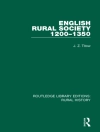A series of Treaties occurred from 1903 through 1955 that slowly unraveled the right of the United States to effectively govern the Canal.
This book begins with my life while working as an employee of the United States government, but it could have been written about any government employee.
President Carter used all the offices of the government to clear the way for the treaty that gave away the canal.
Th newly elected President, Reagan, decided to push back on the drift left in Central and South America.
As a pretext over repeated attacks against Americans, and threats against the Canal, the United States invaded Panama and removed the dictator, Noriega, from power. In his place, the United States installed Endara as president of Panama. When the Balladares Presidency replaced Endara, corruption increased tenfold.
The Canal piers system was put up for bids. Through bribery, China won that bid. The Clinton administration supported that decision.
The Clinton administration covered up human trafficking within its own State Department, China, and Panama. Even before Clinton became president, the Chinese government was intent on corrupting the United States at every level.
The third locks were opened in 2016. The direct influence in the Panama Canal by the United States was essentially terminated in the year 2000.
Yazar hakkında
William Drummond was born on the south west side of Philadelphia in 1938. He was the youngest of six children born to Anna Boggs and Donaldson Drummond. Philadelphia had not yet recovered from the great depression. The sounds, sights, and smells were replete with cobble-stoned streets, and horse -drawn carts, honeypots swinging from the rear, and drivers hawking their wares. Most families owned Ice boxes. The row houses were heated by potbellied coal burning heaters located in the cellar. There was no such thing as air conditioning. In 1945, his parents divorced soon after his father was discharged from the navy.
Although, getting custody of four of the children, their father was a ghost, spending time at home only when forced to do so. The author and his older brother James were left to their own devices and avoided their father whenever possible. They became the terror of their neighborhood. Ironically, they were never arrested. Their father’s strap, at the slightest provocation, was their discipline.
School was an afterthought and also avoided. At age 15, the author worked as a dishwasher, and busboy in the morning and as a pinsetter at a bowling alley at night. At 16, he worked at a bookbinding company on front street in Philadelphia.
At age 17, he joined the Marine corps, spent several tours of duty in the Mediterranean with the 6th fleet, obtained the rank of corporal, obtained a GED education, and was discharged in early 1960.
Returning to his previous employment, the author soon decided to move to Chicago, later Los Angeles, and eventually returned to Philadelphia. Unable to find work, he joined the Army Airborne, obtained the rank of Sargent and was discharged in 1964.
In 1964, after being discharged, the author began working as a policeman for the United States Government within the Canal Zone. He became the president of a local A.F.G.E. union 1798, a legislative representative of most of the local U.S. Unions in the canal Zone, the CLU-MTC, and obtained a college degree while working at night.
The author retired in 1984 and settled in Pensacola, Florida to write a two-book trilogy ‘The American Canal in Panama, ‘ a history of the expansion of western civilization and his experiences while working within the Canal Zone.












